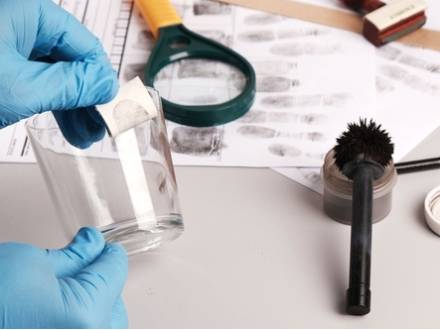Can the Police Lie to You about Having Evidence?
 If you are arrested or questioned by the police and they tell you they have enough evidence to convict you, you might be compelled to confess to something you otherwise would not. If you are told that your fingerprints were found at a crime scene or that the police have witnesses or video footage proving your guilt, you might be nervous enough about how it all looks to make an illogical decision.
If you are arrested or questioned by the police and they tell you they have enough evidence to convict you, you might be compelled to confess to something you otherwise would not. If you are told that your fingerprints were found at a crime scene or that the police have witnesses or video footage proving your guilt, you might be nervous enough about how it all looks to make an illogical decision.
While it might seem unfair, the police are allowed to use deception as a tactic during interrogations. However, that does not mean that you should believe everything they say or speak to them without understanding your rights. To understand more about how to protect yourself during a criminal investigation, speak with an experienced Naperville, IL criminal defense lawyer.
Why Do the Police Lie?
Police officers sometimes lie about evidence as part of their interrogation strategy to get a suspect to confess or provide more information. They might say they have evidence when they do not, hoping that will make you panic and admit guilt. They might exaggerate the strength or validity of their evidence to make you believe that you will not be helped by resisting arrest or staying silent.
They might say things like, "We have a witness who can place you at the scene" or "Your DNA was found all over the victim’s belongings." Even if they do not actually have this evidence, they want you to think they do so you will break down and admit to something that could be used against you later.
Is It Legal for Police to Lie?
Yes, police officers are legally permitted to lie about having incriminating evidence. However, there are limits to this. Police can use deceptive tactics as long as they do not violate your constitutional rights, such as your right not to incriminate yourself. So they can try to trick you, but you do not need to help them by speaking or confessing.
Since the Fifth Amendment protects your right to remain silent, you do not have to answer questions if the answer could potentially incriminate you. Your right to have a lawyer present during questioning can also be crucial if you are trying to remain firm while facing distressing lies from the police.
What Can You Do If the Police Lie to You?
If the police lie to you about having evidence against you, you should try your hardest to remain calm and avoid saying anything. It is natural to feel nervous during an interrogation, but anything you say can be used against you later. Even if you feel the pressure to confess, remember that you do not need to say anything without a lawyer present.
Depending on the mood in the interrogation, you can request or even demand to speak to an attorney and refuse to answer any more questions until your lawyer is there. A qualified defense attorney can protect your rights and ensure that any evidence or statements that are used against you were obtained legally.
Schedule a Free Consultation with a Naperville, IL Criminal Defense Lawyer
While it can seem wrong and unfair, police officers are allowed to lie to you about having incriminating evidence. They are often motivated by the goal of tricking you into saying something that could hurt your case. A skilled Illinois criminal defense attorney can make sure you know your rights and understand what is happening.
As a former Assistant State’s Attorney in DuPage County, IL, Mr. Nathe understands the prosecution’s perspective in the criminal process and will work hard to protect you from having your rights violated. Call Law Office of Philip R. Nathe at 630-416-7600 to schedule a free consultation.














